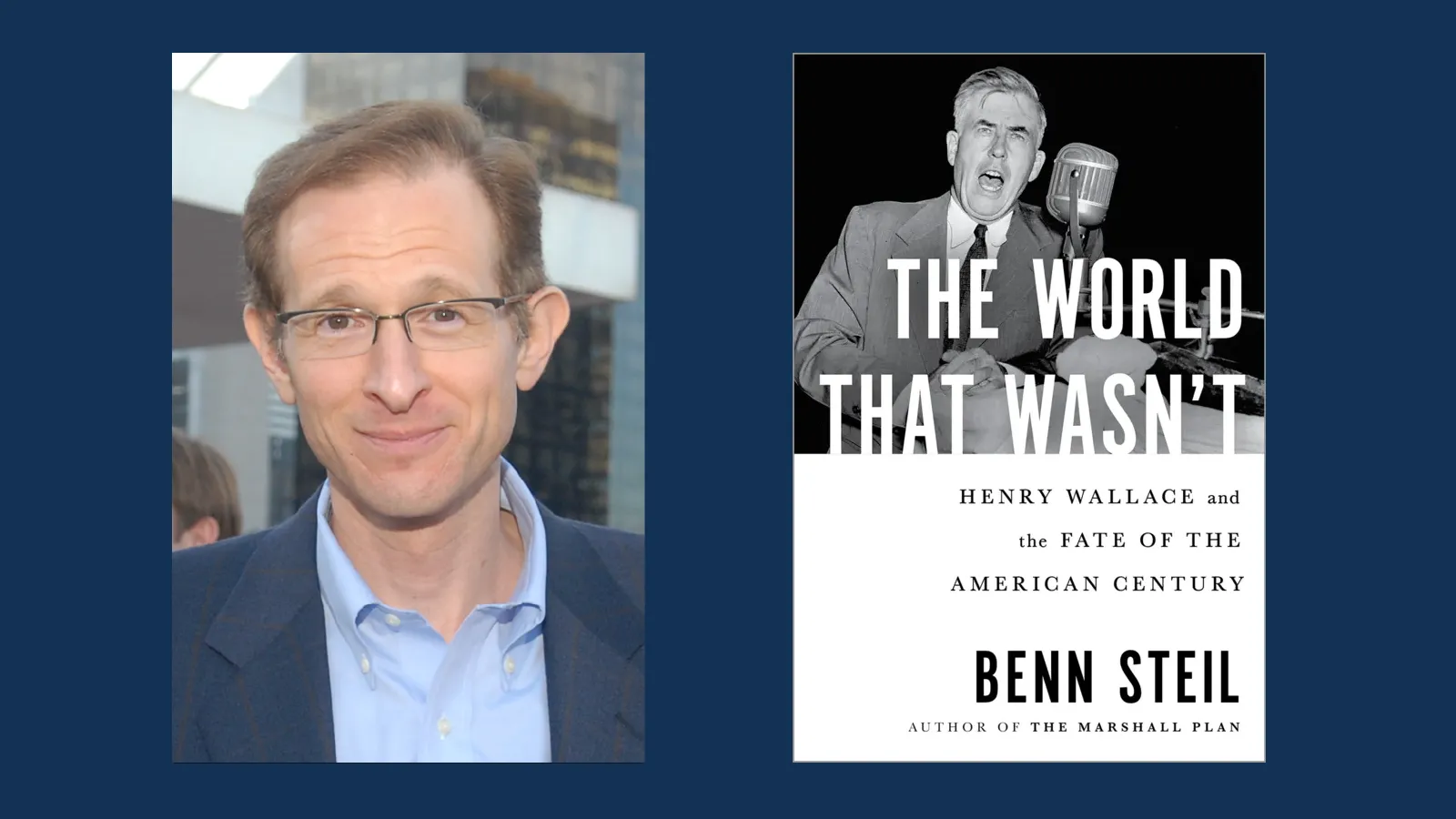The World That Wasn't: Henry Wallace and the Fate of the American Century

Introduction
Henry Wallace is the most prominent progressive American political figure of the 1940s—one who very nearly became president at a critical moment in U.S. and world history. Benn Steil’s fascinating “What if?” study of Wallace’s eventful career, based on troves of new Russian and FBI archival finds, sheds an important new light on how U.S. and Soviet foreign policy were forged at the dawn of the Cold War.
Summary
Henry Wallace is the most important, and certainly the most fascinating, almost-president in American history. As Franklin D. Roosevelt’s third-term vice president and a hero to many progressives, Wallace lost his place on the 1944 Democratic ticket in a wild open convention, as a result of which Harry Truman became president on Roosevelt’s death. Books, films, and even plays have since portrayed the circumstances surrounding Wallace’s defeat as corrupt, and the results catastrophic. Filmmaker Oliver Stone, among others, has claimed that Wallace’s loss ushered in four decades of devastating and unnecessary Cold War.
Now, based on striking new finds from Russian, FBI, and other archives, Benn Steil’s The World That Wasn’t paints a decidedly less heroic portrait of the man, of the events surrounding his fall, and of the world that might have been under his presidency. Though a brilliant geneticist, Henry Wallace was a self-obsessed political figure blind to the manipulations of aides—many of whom were Soviet agents and assets.
From 1933 to 1949, Wallace undertook a series of remarkable interventions abroad, each aimed at remaking the world order according to his evolving spiritual blueprint. As agriculture secretary, he fell under the spell of Russian mystics and used the cover of a plant-gathering mission to aid their doomed effort to forge a new theocratic state in Central Asia. As vice president, he toured a Potemkin Siberian continent, guided by undercover Soviet security and intelligence officials who hid labor camps and concealed prisoners. He then wrote a book, together with an American KGB journalist source, hailing the region’s renaissance under Bolshevik leadership. In China, the Soviets uncovered his private efforts to coax concessions to Moscow from Chiang Kai-shek, fueling their ambitions to dominate Manchuria. Running for president in 1948, he colluded with Joseph Stalin to undermine U.S. foreign policy, allowing the dictator to edit his most important election speech. It was not until 1950 that Wallace began to acknowledge his misapprehensions regarding the Kremlin’s aims and conduct.
Meticulously researched and deftly written, The World That Wasn’t is a spellbinding work of political biography and narrative history that will upend how we see the making of the early Cold War.
This book is suitable for the following disciplines in undergraduate and graduate courses:
- International Relations
- U.S. History
- Cold War Studies
Main Takeaways
- Henry Wallace—a Republican, Democrat, Progressive, and finally independent—is the most colorful, fascinating, and important almost-president in American history.
- Had Henry Wallace, rather than Harry Truman, become president on the death of Roosevelt in April 1945, the course of world history would have been very different.
- Counterfactual (or “What if?”) history can aid our understanding of how individuals and their choices shape the world at key moments in time.
Discussion and Essay Questions
International Relations
- Is it ever proper for a presidential challenger to negotiate with, or seek the endorsement of, a foreign leader?
- What is “Jamesian belief,” and should it ever play a role in the making of foreign policy?
- Can “peace” be a policy choice? Discuss.
U.S. History
- How did the thrust in U.S. foreign policy change from Roosevelt to Truman? How might it have been different had Roosevelt lived to finish his fourth term—that is, to what extent was the transition to Truman important or unimportant?
- Compare and contrast the political visions behind Henry Luce’s “American Century” and Henry Wallace’s “Century of the Common Man.”
- Why did Henry Wallace oppose the Truman Doctrine, the Marshall Plan, and NATO? Was he right or wrong to do so?
- Had Henry Wallace kept his vice-presidential spot in 1944, and therefore become president on FDR’s death in 1945, would Congress have stymied important elements of his foreign-policy agenda?
- Why do you think the Soviets were able to fool Henry Wallace regarding the ubiquity of the gulag prison-labor system during his four-week Siberian tour in 1944?
Cold War Studies
- Was the Cold War inevitable?
- Was the early Cold War a conflict based mainly on ideology, geography, or something else?
- To what extent is the present conflict between Russia and the West a continuation of the Cold War?
Supplementary Materials
Levering, Ralph B., Vladimir O. Pechatnov, Verena Botzenhart-Viehe, and C. Earl Edmondson. Debating the Origins of the Cold War: American and Russian Perspective. Lanham, Maryland: Rowman & Littlefield, 2001.
Luce, Henry. “The American Century.” Life, 17 February 1941.
McCullough, David. Truman. New York: Simon & Schuster, 1992.
Phillips, Cabell. “At 75, Henry Wallace Cultivates His Garden.” New York Times, October 6, 1963.
Steil, Benn. “A Genuine Case of Collusion: When an American Presidential Candidate Made a Deal With Stalin.” Foreign Affairs, 19 March 2024.
Steil, Benn. The Marshall Plan: Dawn of the Cold War. New York: Simon & Schuster, 2018.
Wilentz, Sean. “Cherry-Picking Our History: Oliver Stone and Peter Kuznick’s ‘The Untold History of the United States’.” New York Review of Books, February 21, 2013.